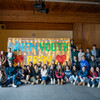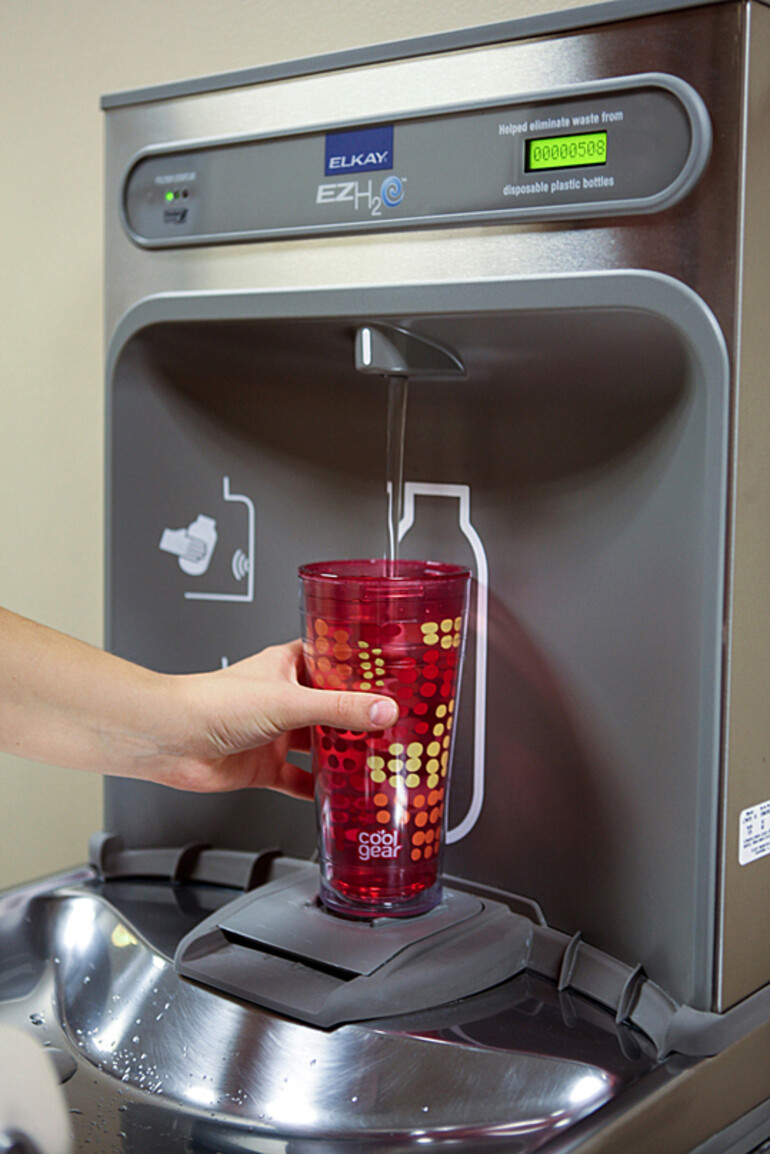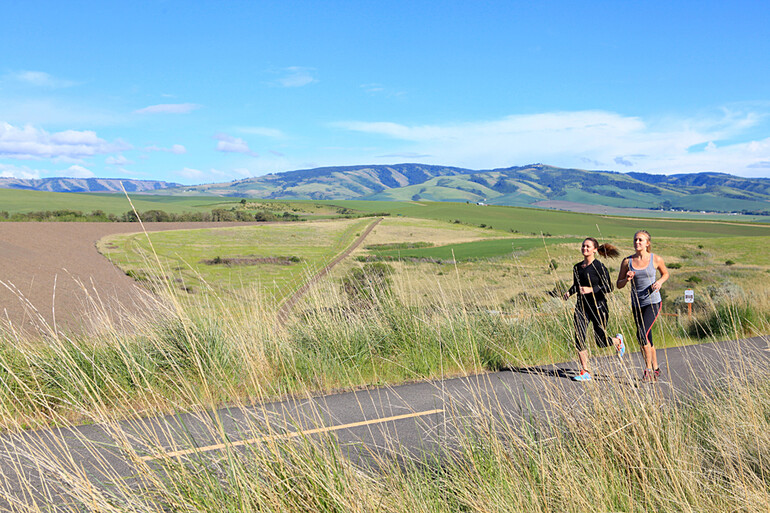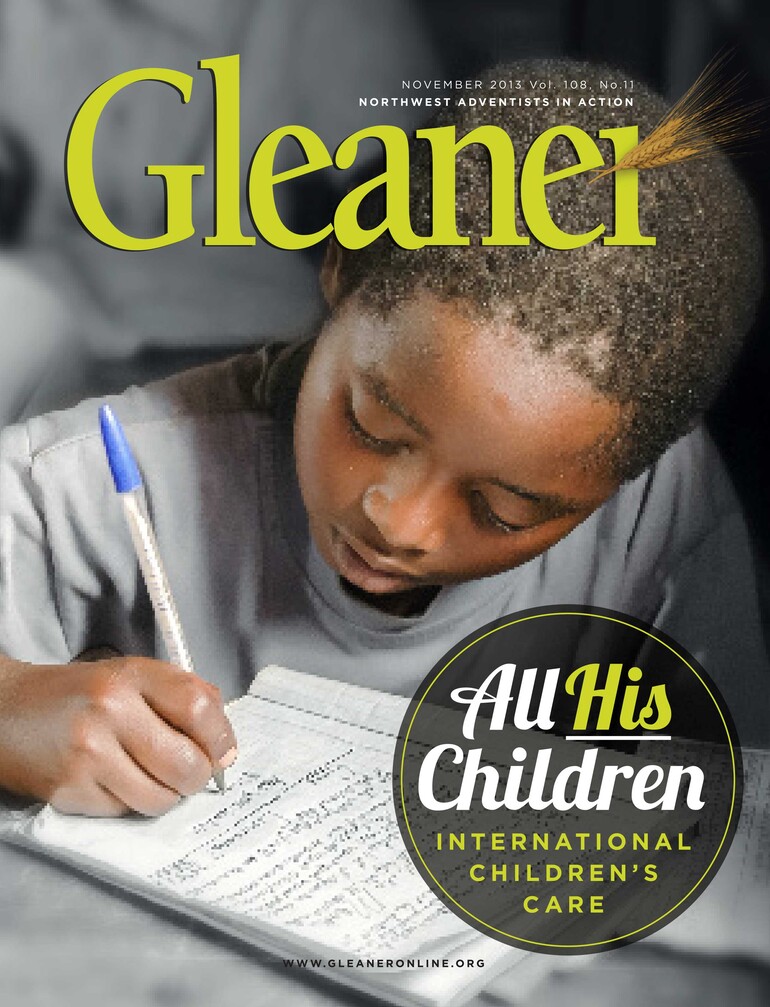The Walla Walla University (WWU) student government, the Associated Students of Walla Walla University (ASWWU), has just completed a project to implement Elkay EZH2O bottle-filling stations on many campus drinking fountains. These devices automatically detect bottles and use vertical pouring mechanisms to fill containers more easily and efficiently than conventional means.
Jono Pratt, ASWWU president, says that the bottle-filling stations cut down on waste and make drinking water more convenient. The stations also encourage the use of reusable bottles as a way to address an environmental problem. National Geographic reported that 9.1 billion gallons of bottled water were sold in 2011, and according to the Chicago Sun-Times only one in five disposable bottles are recycled.
To provide even more incentive to use refillable containers on campus, ASWWU has provided free Nalgene water bottles to students.
The first bottle-filling station, installed in the WWU fitness center about a year ago, has already filled 36,540 bottles. Students and faculty appreciate the convenience that the stations provide and are looking forward to receiving new units throughout the year. Pratt states, "We're hoping that this sets a trend on campus, that everyone starts installing them in their facilities."
Pratt first envisioned this project during his previous term in the student government, and Tyler Sherwin sponsored the bill in ASWWU senate, the student body's group of elected representatives. The speed at which this project was realized shows that the bond between WWU management and ASWWU is better than ever, Pratt says. He also believes that this is the start of a new era of cooperation between WWU students and administration.
This project was completed with the assistance of WWU staff and students. Casey Fant, campus plumbing foreman, was an indispensable member of the team, assisting with everything from logistics to installation. In his eyes, this project was a joy because of all the plastic bottles that are being kept out of landfills. Fant and two student athletes, Michael Martinez and Jordan Collins, worked over the summer to install new stations, bringing the total to 15.
In view of health, Pratt explains, "water is an essential part of wellness and healthful living, so we wanted to provide that to the campus."
The stations are one of many health-oriented projects students have initiated in recent years. The newest is the ASWWU outdoors program, which encourages physical activities such as hiking, biking and camping.












